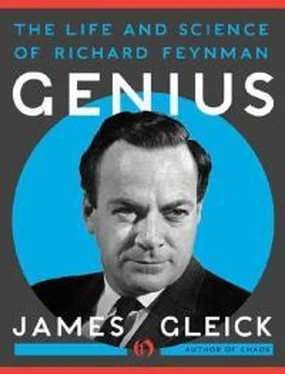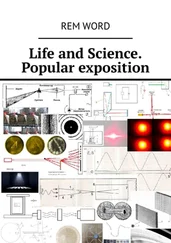Wheeler, John Archibald, and Ruffini, Remo. 1971.
“Introducing the Black Hole.” Physics Today , 24.
Wheeler, John Archibald, and Wigner, Eugene P. 1942.
Report of the Readers of Richard P. Feynman’s Thesis on “The Principle of Least Action in Quantum Mechanics.” Typescript, PUL.
Wheeler, John Archibald, and Zurek, Wojciech Hibert.
1 9 8 3 . Quantum Theory and Measurement .
Princeton: Princeton University Press.
White, D. Hywel; Sul ivan, Daniel; and Barboni, Edward J.
1979. “The Interdependence of Theory and Experiment in Revolutionary Science: The Case of Parity Violation.” Social Studies of Science 9:303.
Whitrow, G. J. 1980. The Natural Philosophy of Time .
Oxford: Clarendon Press.
Wiener, Norbert. 1956. I Am a Mathematician: The Later Life of a Prodigy . Garden City, N.Y.: Doubleday.
Wigner, Eugene P., ed. 1947. Physical Science and
Human Values . Princeton Bicentennial Conference on the Future of Nuclear Science. Princeton: Princeton University Press.
Wil iams, L. Pearce. 1966. The Origins of Field Theory .
New York: Random House.
Wil iams, Michael R. 1985. A History of Computing Technology . Englewood Cliffs, N.J.: Prentice-Hal .
Wil iams, Robert Chadwel . 1987. Klaus Fuchs, Atom Spy .
Cambridge, Mass.: Harvard University Press.
Wilson,
Jane,
ed.
1975. All in Our Time: The
Reminiscences of Twelve Nuclear Pioneers .
Chicago: Educational Foundation for Nuclear Sciences.
Wilson, Robert R. 1942. “Isotope Separator: General Description.” Isotron Report no. 1. SMY.
——. 1958. Review of Brighter Than a Thousand Suns. In Scientific American, December, 145.
——. 1972. “My Fight Against Team Research.” In Holton 1972, 468.
——. 1974. “A Recruit for Los Alamos.” In J. Wilson 1975, 142.
Woolf, Harry, ed. 1980. Some Strangeness in the Proportion:
A
Centennial
Symposium
to
Celebrate the Achievements of Albert Einstein .
Reading, Mass.: Addison-Wesley.
Wright, Kenneth W.; Monroe, James; and Beck, Frederick.
1990. “A History of the Ray Brook State Tuberculosis Hospital.” New York State Journal of
Medicine 90, 406.
Yang, Chen Ning. 1957. “The Law of Parity Conservation and Other Symmetry Laws in Physics.” Nobel lecture, 11 December 1957. In Nobel Lectures: Physics . Amsterdam: Elsevier, 1964.
——. 1962. Elementary Particles: A Short History of Some Discoveries in Atomic Physics . Princeton: Princeton University Press.
——. 1983. “Particle Physics in the Early 1950s.” In Brown et al. 1989, 40.
Yang, Chen Ning.; Cole, J. A.; Good, M.; Hwa, R.; and Lee-Franzini, J., eds. 1969. High Energy Collisions: Third International Conference . London: Gordon and Breach.
Yukawa, Hideki. 1973. Creativity and Intuition: A Physicist Looks East and West . Translated by John Bester.
Tokyo: Kodansha.
Zeman, Jin, ed. 1971. Time in Science and Philosophy .
Amsterdam: Elsevier.
Ziman, John. 1978. Reliable Knowledge: An Exploration of the Grounds for Belief in Science . Cambridge: Cambridge University Press.
——. 1992. “Unknotting Epistemology.” Nature 355:408.
Zuckerman,
Harriet.
1977. Scientific Elite: Nobel
Laureates in the United States . New York: The Free Press.
Zurek, Wojciech Hubert; van der Merwe, Alwyn; and Mil er, Warner Al en, eds. 1988. Between Quantum and
Cosmos: Studies and Essays in Honor of John Archibald Wheeler . Princeton: Princeton University Press.
Zweig, George. 1981. “Origins of the Quark Model.” In Baryon
’80:
Proceedings
of
the
Fourth
International Conference on Baryon Resonances .
Toronto: University of Toronto Press.
INDEX
Aberdeen Proving Ground (Md.), 182
absorber theory, see Wheeler-Feynman electrodynamics action, 59–61, 131–32, 226, 229, 247–48. See also least action, principle of Planck’s constant and, 71
action at a distance, 101–2, 128
Aldrich, Arnold, 419–20
algebra, 29–30, 33–34, 36, 183, 362, 401
Alice in Wonderland (Carrol ), 124
Alpert, Richard, 406
American Broadcasting Corporation, 378
American Museum of Natural History (New York), 25
American Physical Society, 53
meetings, 40, 117, 252, 270, 301, 354–55, 411–12
Ampère, Andrè-Marie, 320
analogy, 404
Anderson, Carl, 81, 253
anthropology, 287, 290
antigravity, 295, 407
antimatter, 7, 122, 253–54, 305, 334, 407
and time reversal, 82, 123, 258, 272–73
anti-Semitism, 23, 49, 53, 62, 84–85, 167, 233
Archimedes, 315
Aristotle, 359
Armstrong, Neil, 417, 423
Army, United States, 137, 182, 414–15
Feynman as consultant, 295
Los Alamos and, 161, 187, 192–93, 198–99
Oppenheimer and, 158–59
secrecy and, 166, 169
Ashkin, Julius, 192
Associated Press, 378
astrology, 373–74
athletics, 327–28
atom, 36–39, 58–59, 114. See also hydrogen; uranium models of, 5, 71–72, 95, 99, 241–43
nucleus, 9, 79–80, 89–90, 130, 264, 307, 392
atomic bomb. See also Los Alamos
Bethe-Feynman formula, 6, 168
chain reaction, 161–63, 172–73, 197
computation, 175–82, 201
dragon experiment, 196
effect on physics, 4, 203, 207–11, 216, 232, 294–95, 376, 431
guilt over, 3, 156, 203, 207–9, 213, 263–64
Hiroshima, 156, 203–4, 210, 218, 237, 263
isotron project, 139–45
Nagasaki, 156, 203, 210
official history, 164
origins of, 95, 136, 139
postwar consequences of, 156, 207–11, 213, 218, 233, 278, 294–95, 340, 431
practical difficulties, 163–65, 170–73, 181
predetonation, 6, 168–69
radioactivity, 197–99
Russian, 278, 297–98
space travel and, 218–19
theorists’ role, 155, 163–65, 173–74, 181
Trinity test, 6, 65–66, 153–57, 203
atomic energy, 218, 339
Atomic Energy Commission, 209, 211, 277, 295–96
AT&T Bel Laboratories, see Bel Telephone Laboratories Auden, W. H., 7–8
aurora borealis, 27, 436, 437
Baade, Walter, 293
Baba Ram Das, see Alpert, Richard
Babbage, Charles, 180
Bacher, Robert F., 210–11, 277–78, 338
Bacon, Francis, 429
Bacon, Roger, 68, 314
bacteria, 349–51
Bader, Abram, 60–61, 362
Bainbridge, Kenneth, 155
Barber, Edwin, 411 n
Bardeen, John, 303
Barschal , Heinz, 96
Bartkey, Walter, 293
Baudelaire, Charles-Pierre, 318
Bayside Cemetery (New York), 26, 220–21
Beethoven, Ludwig van, 318
Beggs, James, 421, 427
Bel , Alexander Graham, 40, 319
Bel , Mary Louise (second wife), 287, 291–94
Bel Telephone Laboratories, 85, 137–38, 182, 354
Bergman, Ingrid, 223
Bernal, J. D., 315–16
Bernoul i, Daniel, 39
Bernstein, Jeremy, 277
Besicovitch, A. S., 236
beta decay, 272, 309, 330–39
Bethe, Hans, 53, 176–78, 216, 233, 255–59, 287, 386
background, 166–67, 289
consulting, 223
at Cornel , 204–5, 226–28, 269–70, 277, 278, 293–94
and Dyson, 235, 238–39, 266–67
Читать дальше












